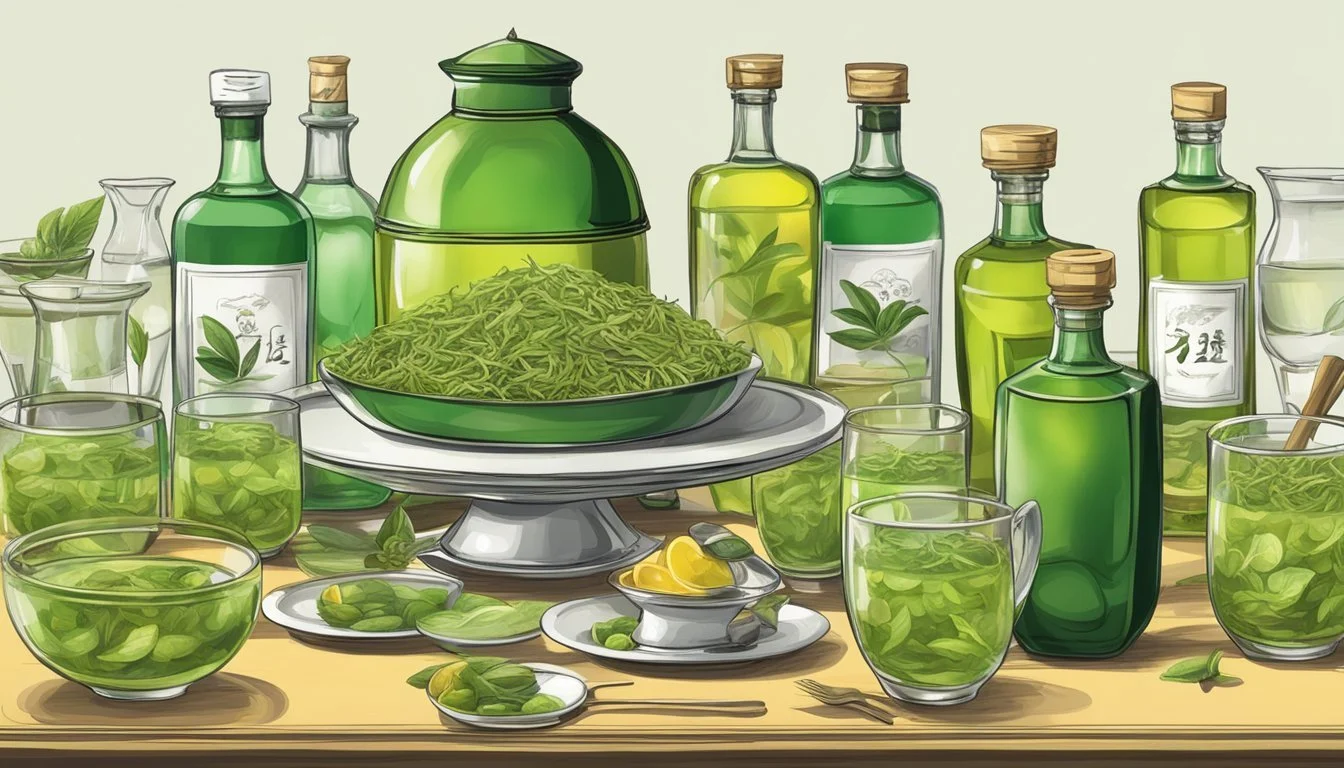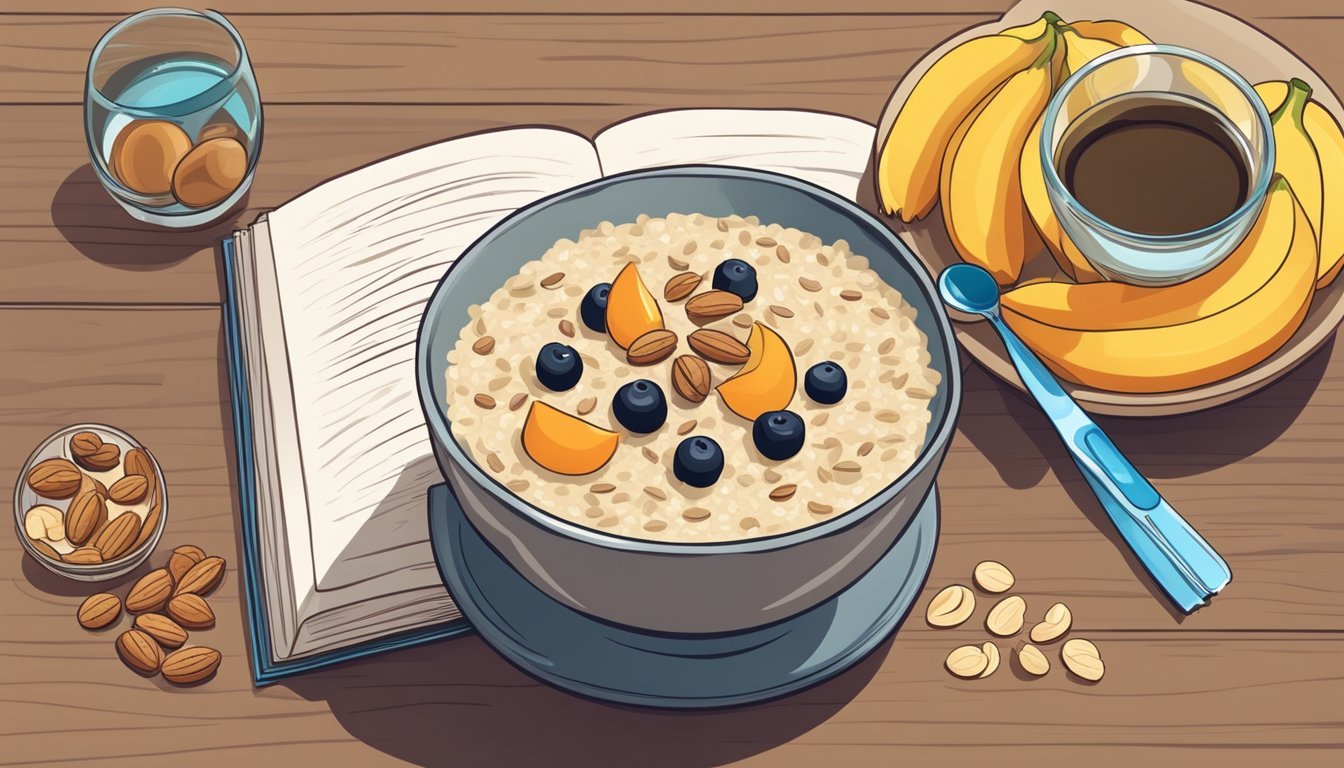Powerful Foods to Curb Alcohol Cravings and Support Recovery
Quitting alcohol can be a challenging journey, but incorporating the right foods into one’s diet can significantly aid in the detox process. Balanced, nutrient-rich meals not only support the body's recovery from alcohol dependence but also help mitigate withdrawal symptoms and restore essential nutrients.
Certain foods can provide the necessary vitamins and minerals that may have been depleted due to alcohol use, aiding in the body’s overall healing process. Understanding which foods to prioritize can make the journey smoother and improve the chances of a successful recovery.
1) Banana Smoothie
Banana smoothies can be a beneficial component in quitting alcohol due to their high nutrient content. The natural sugars in bananas, combined with their fiber, provide stable energy levels without causing blood sugar spikes. This can help reduce cravings for alcohol, which often stem from fluctuating blood sugar levels.
Bananas are rich in potassium and magnesium, which are essential for muscle function and circulation. These minerals also aid in reducing alcohol withdrawal symptoms such as muscle cramps and fatigue. Additionally, bananas contain tryptophan, which the body converts into serotonin to improve mood and overall well-being.
Adding a banana smoothie to the daily diet can provide these nutritional benefits in a tasty and convenient way. Combine bananas with non-dairy milk, like almond or oat milk, for a creamy texture without additional dairy. Some might find that adding a handful of spinach can further enhance the smoothie’s nutritional profile without altering its flavor significantly.
For added benefits, consider including a source of healthy fat, such as a spoonful of peanut butter or a few slices of avocado. These additions help to keep you full longer, reducing the urge to snack on less healthy options that might trigger cravings for alcohol.
2) Green Tea
Green tea has been recognized for its potential benefits in supporting the detoxification process during alcohol withdrawal. It contains powerful antioxidants that can help to repair liver damage caused by prolonged alcohol consumption.
The catechins in green tea, particularly EGCG, may support liver function and enhance detoxification pathways. This can be beneficial in alleviating withdrawal symptoms from alcohol.
In addition to its antioxidant properties, green tea can also have a calming effect, which can be useful for those dealing with anxiety and stress during detoxification. Its ability to boost metabolism and promote hydration also contributes to overall well-being during recovery.
Green tea should not be considered a cure for alcohol dependence, but rather a supportive addition to a comprehensive detox regimen. It is best consumed as part of a balanced diet rich in other detox-supportive foods.
3) Kombucha
Kombucha, a fermented tea, has gained popularity as a potential ally in the journey to quit alcohol. Rich in probiotics, kombucha supports gut health, which can be beneficial during the detoxification process.
The beverage also contains vitamins such as B1, B6, and B12. These vitamins help boost the immune system and regulate mood, aiding in the recovery process from alcohol dependency.
Kombucha has a very low alcohol content, typically below 0.5%. This minimal amount allows it to serve as a satisfying alternative to alcoholic beverages without the intoxicating effects.
An additional benefit of kombucha is its ability to assist in reducing cravings. The fizzy, tangy drink can substitute the sensory experience of drinking alcohol, making it easier to resist temptation.
Due to these properties, kombucha can be a useful component in a broader strategy to quit alcohol. Nonetheless, it should be consumed in moderation, considering individual health conditions and dietary needs.
By incorporating kombucha into their routine, people aiming to quit alcohol may find it easier to cope with withdrawal symptoms and maintain overall well-being.
4) Oatmeal
Oatmeal is a nutritious and versatile food that can support those looking to quit alcohol. Rich in soluble fiber, it helps stabilize blood sugar levels, which can be particularly important during alcohol detox.
Oatmeal also contains essential vitamins and minerals, including B vitamins, which alcohol consumption can deplete. These nutrients play a crucial role in maintaining energy levels and supporting brain function.
Oatmeal promotes healthy gut bacteria, beneficial for digestive health. A functioning digestive system aids the liver and kidneys in their detoxification roles, helping the body to recover from alcohol use.
Oatmeal is easy to prepare and can be customized with various healthy toppings such as fruits, nuts, and seeds. This makes it a convenient and appealing option for many seeking to improve their diet during alcohol recovery.
5) Lemon Water
Lemon water can be a useful beverage for those working to quit alcohol. The vitamins in lemon juice, particularly vitamin C, replenish nutrients that are often depleted by heavy drinking.
Drinking lemon water in the morning can help reenergize the body. The antioxidants present in lemon juice combat the damage caused by alcohol consumption.
Lemon water also aids in hydration. Alcohol causes dehydration, and replenishing fluids with added vitamins and minerals can be helpful for overall health.
The natural acidity of lemon juice promotes a healthier gut. This can alleviate digestive issues that arise from alcohol withdrawal.
Incorporating lemon water into daily routines provides an accessible, natural option for supporting the body during alcohol detoxification.
6) Kiwi
Kiwi is a nutrient-dense fruit that can be highly beneficial during the process of quitting alcohol. It is packed with vitamins, especially Vitamin C, which is known to boost the immune system and aid in the body's healing processes.
The high fiber content in kiwi helps in digestion, which can be crucial for individuals experiencing digestive issues during alcohol withdrawal. This can also assist in maintaining gut health.
Kiwi contains antioxidants that can help combat oxidative stress caused by prolonged alcohol consumption. These antioxidants help in protecting the body’s cells and tissues, contributing to overall well-being.
This fruit is also hydrating due to its high water content, which helps in keeping the body hydrated. Proper hydration is essential during detoxification as it aids in flushing out toxins from the system.
Kiwi’s natural sugars can help manage sugar cravings, which are common when reducing alcohol intake. This can help in avoiding unhealthy snacks and maintaining a balanced diet.
Incorporating kiwi into the diet can be simple and versatile. It can be eaten alone, added to smoothies, or mixed into salads. This makes it an easy and nutritious option for those looking to support their body while quitting alcohol.
7) Almonds
Almonds are rich in essential nutrients that can support the body's recovery during alcohol detoxification.
High in healthy fats, protein, and fiber, almonds help stabilize blood sugar levels. This can be particularly beneficial in managing cravings and mood swings often experienced during withdrawal.
They also provide a good source of magnesium and vitamin E. Magnesium can aid in reducing irritability and fatigue, common withdrawal symptoms.
Vitamin E acts as an antioxidant, helping to repair the damage caused by prolonged alcohol consumption. Including almonds in one's diet can be an easy and effective way to support the body's healing process.
8) Broccoli
Broccoli is a nutrient-rich vegetable that can support the body during alcohol detoxification. High in vitamins C and K, it helps boost the immune system and promotes healthy blood clotting.
This cruciferous vegetable is also packed with fiber, aiding in digestive health. Fiber helps in maintaining a healthy gut microbiome, which can be disrupted by alcohol consumption.
Broccoli contains antioxidants like sulforaphane. Antioxidants combat oxidative stress, which is often elevated during alcohol withdrawal.
The folate in broccoli supports cellular repair. Alcohol can deplete the body of necessary vitamins and minerals, so consuming broccoli helps replenish these essential nutrients.
Incorporating broccoli into meals is beneficial for hydration. With its high water content, broccoli helps maintain adequate hydration levels, which is crucial during detox.
It's versatile and can be added to a variety of dishes, including salads, stir-fries, and soups. This makes it an easy addition to any diet focused on recovery from alcohol use.
Broccoli's combination of vitamins, fiber, and antioxidants makes it a powerhouse food to support the body during the detox process.
9) Spinach
Spinach is a powerful leafy green that provides essential nutrients beneficial during alcohol detox. It is rich in vitamins A, C, and K, as well as several antioxidants which help combat oxidative stress caused by alcohol consumption.
This nutrient-dense vegetable also contains magnesium, a mineral known for its role in reducing fatigue and muscle cramps, common symptoms during detox. Fiber content in spinach promotes healthy digestion, supporting a balanced gut microbiome.
Incorporating spinach into meals can be simple. It can be eaten raw in salads, cooked into dishes like soups and omelets, or blended into smoothies. Its versatility makes it easy to include regularly, aiding in the recovery process and overall health during detox.
10) Sweet Potatoes
Sweet potatoes are an excellent food choice for those looking to quit alcohol. They are packed with vitamin A and pantothenic acid, which can help fill nutritional gaps commonly found in those detoxing from alcohol.
One cup of raw sweet potato cubes provides 105% of the daily recommended intake for vitamin A. This is important because many people who are detoxing from alcohol tend to have lower levels of this nutrient.
In addition to vitamins, sweet potatoes contain fiber, which supports digestive health. A healthy digestive tract can help the body rid itself of toxins more efficiently.
Rich in carbohydrates, sweet potatoes can also help stabilize blood sugar levels. This is beneficial as alcohol withdrawal can often cause fluctuations in blood sugar.
Sweet potatoes are versatile in the kitchen. They can be steamed, baked, or mashed, making it easy to incorporate them into a variety of meals. This can be particularly convenient for those looking to maintain a nutritious and balanced diet during recovery.
Nutritional Support for Alcohol Withdrawal
Supporting the body nutritionally during alcohol withdrawal is essential for alleviating symptoms and promoting recovery. Key areas to focus on are replenishing vitamins and minerals and ensuring proper hydration.
Vitamins and Minerals
Alcohol consumption can deplete essential nutrients from the body, particularly B vitamins (thiamine, riboflavin, niacin, B6, and B12), vitamin C, zinc, magnesium, and iron. Foods rich in these nutrients help restore balance.
B vitamins: Found in whole grains, nuts, seeds, eggs, and leafy greens.
Vitamin C: Abundant in citrus fruits, strawberries, bell peppers, and broccoli.
Zinc and Iron: Often present in meats, poultry, seafood, beans, lentils, and nuts.
Magnesium: Available in leafy greens, nuts, seeds, and whole grains.
Supplements may also be necessary to address severe deficiencies, as suggested by a healthcare provider.
Hydration Importance
Hydration is crucial during alcohol withdrawal due to frequent symptoms like vomiting, diarrhea, and sweating. These symptoms can lead to dehydration and loss of electrolytes.
Drinking water consistently helps maintain hydration. Adding electrolyte solutions or drinks can aid in restoring balance. Coconut water can be a natural alternative due to its electrolyte content.
Incorporating fruit juices like orange or apple can also provide both fluids and essential vitamins. Herbal teas, such as chamomile or peppermint, are beneficial for soothing the stomach and reducing nausea.
By maintaining proper hydration, individuals support their body's natural detoxification processes and can alleviate some of the uncomfortable symptoms associated with alcohol withdrawal.
Role of Balanced Diet in Recovery
A balanced diet is crucial in supporting the body through alcohol detox and recovery, helping to replenish essential nutrients and improve overall health. The inclusion of protein-rich foods and healthy fats plays a significant role in this process.
Protein-Rich Foods
Incorporating protein-rich foods is essential during recovery from alcohol dependency. Protein sources such as meats, poultry, fish, beans, peas, eggs, nuts, and seeds provide B vitamins, vitamin E, iron, zinc, and magnesium.
These nutrients are often deficient in individuals recovering from alcohol abuse. Proteins help repair tissues and maintain muscle mass. Including lean meats and legumes in meals can support metabolic functions and promote healing.
Additionally, proteins contribute to the production of neurotransmitters, which can stabilize mood and reduce anxiety. For vegetarians, tofu and quinoa serve as excellent alternatives, ensuring a continued intake of necessary nutrients.
Healthy Fats
Healthy fats are vital as they support brain health and reduce inflammation. Sources of healthy fats include avocados, nuts, seeds, olive oil, and fatty fish like salmon and mackerel.
These fats provide omega-3 and omega-6 fatty acids, which are crucial for cognitive function and can help manage depression and anxiety associated with withdrawal. Omega-rich foods aid in repairing cellular membranes and improving overall mental well-being.
In contrast, avoiding trans fats and highly processed fats is recommended, as they can exacerbate inflammation and negatively impact recovery. Incorporating flaxseeds and chia seeds into the diet can provide additional benefits due to their high omega-3 content.
Lifestyle Changes to Aid Recovery
In addition to dietary changes, incorporating regular physical activity and practicing mindfulness can significantly improve the journey of quitting alcohol. These lifestyle changes can provide both physical and mental benefits that support the overall recovery process.
Regular Physical Activity
Engaging in consistent exercise can help reduce stress, anxiety, and depression, which are common during alcohol recovery. Activities like running, swimming, or cycling release endorphins, also known as "feel-good" hormones.
Yoga and Pilates are particularly beneficial. They focus on both physical fitness and mental well-being, offering a holistic approach to recovery. Regular exercise improves sleep quality, which is often disrupted during detox.
Moreover, joining group fitness classes or sports teams can provide a sense of community and support, combating isolation that some may feel during recovery. The key is to find enjoyable activities to make consistent physical movement a part of daily life.
Mindfulness and Meditation
Practicing mindfulness and meditation can significantly aid in managing cravings and reducing stress. These techniques teach individuals to stay present and develop a greater awareness of their thoughts and feelings.
Guided meditation apps like Headspace or Calm offer structured programs designed for beginners. These tools provide exercises that can be as short as five minutes, making it easier to integrate them into a busy day.
Deep-breathing exercises can be particularly useful during moments of intense craving. Techniques such as the 4-7-8 breathing method help calm the mind and reduce immediate stress.
Additionally, mindfulness-based stress reduction (MBSR) programs provide more intensive training in mindfulness practices, which can be beneficial for ongoing recovery efforts.








